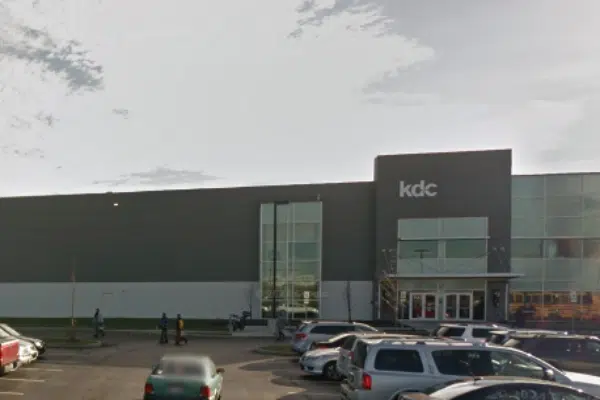
A tragic shooting at the KDC/One warehouse in New Albany, Ohio, has left at least two people dead and four others injured, according to CBS News. The incident occurred late Tuesday night, prompting a swift response from law enforcement and the evacuation of approximately 150 employees.
New Albany Police Chief Greg Jones confirmed that one victim was found dead at the scene, while another succumbed to their injuries early Thursday morning. The conditions of the four hospitalized victims remain undisclosed. Authorities have not released the identities of the victims, citing state crime victims' rights laws.
Bruce Reginald Foster III, 28, is accused of killing one person and injuring five others before being arrested Wednesday morning. The New Albany Police Department responded to a 911 call at 10:30 p.m. Tuesday, where they found multiple people with gunshot wounds. A 911 caller stated, "We've been shot at KDC/ Albany One, I've been shot!" The caller explained that he had been shot in the neck and was on the floor but had managed to take the gun away from the shooter.
Police Chief Greg Jones said Foster was an employee at the facility and was on the clock before the shooting. He described the event as a "targeted attack," but the intended target remains unknown. Foster left the scene in a rideshare vehicle, leaving behind a scene of chaos and terror for the 150 people inside. Authorities later apprehended Foster in the University District area near the OSU campus. The investigation is ongoing.
The KDC/One facility, which produces cosmetics and personal care products, remains closed as investigators process the scene. Foster is facing charges of aggravated murder and is being held on a $20 million bond. The investigation is ongoing as authorities work to determine what led to this devastating event.

Workplace shootings leave behind a trail of devastation, impacting not only the victims but also their families and communities. As those affected grapple with the emotional and physical toll, questions often arise about accountability and legal recourse. To address these concerns, Darla Medina speaks with John Bey, an experienced Ohio attorney specializing in workplace injury and wrongful death cases, to discuss the legal steps available for those injured or killed in such tragic events.
Editor Darla Medina: Thank you for joining us. In the aftermath of tragic workplace shootings like the one in New Albany, what legal options are available for the victims or their surviving families?
Attorney John Bey: These situations are devastating, but victims and their families do have legal avenues to consider. Civil lawsuits can be filed against the perpetrator, but they may also extend to employers or other entities if negligence contributed to the incident. For example, if there were inadequate security measures or a failure to address known risks, those responsible could be held accountable.
Medina: Could you elaborate on how employers might be held liable in such cases?
Bey: Certainly. Employers have a duty to provide a safe working environment. If they neglect this responsibility—such as failing to implement proper security protocols or ignoring warning signs of potential violence—they could face claims for negligent security or wrongful death. These claims not only seek compensation for the victims but also aim to encourage better safety practices to prevent future tragedies.
Medina: For families who have lost loved ones, what kind of support can they expect through legal action?
Bey: Families can pursue wrongful death claims to recover damages for both economic losses, like lost income, and non-economic losses, such as emotional suffering. While no amount of money can replace a loved one, these claims provide financial stability during an incredibly difficult time and hold negligent parties accountable.
Medina: What advice would you give to those considering legal action after such an event?
Bey: My advice is to act promptly and consult with an experienced attorney who specializes in workplace injury or wrongful death cases. Evidence needs to be preserved, and there are statutes of limitations that govern how long you have to file a claim. A skilled attorney can guide victims and families through the process with compassion and ensure their rights are protected.
The aftermath of a workplace shooting is a time of immense grief and confusion. However, it's vital for victims and their families to understand their legal rights. Our team stands ready to offer compassionate guidance and unwavering support during these challenging times. If you or a loved one has been affected by a workplace shooting, don't face this burden alone. Contact us today for a free, confidential consultation. Our experienced team will listen to your story, explain your options, and help you navigate the path forward. Remember, seeking legal advice doesn't just protect your rights—it can also play a crucial role in preventing future tragedies and fostering safer workplaces for all.
 info@legalherald.com
info@legalherald.com